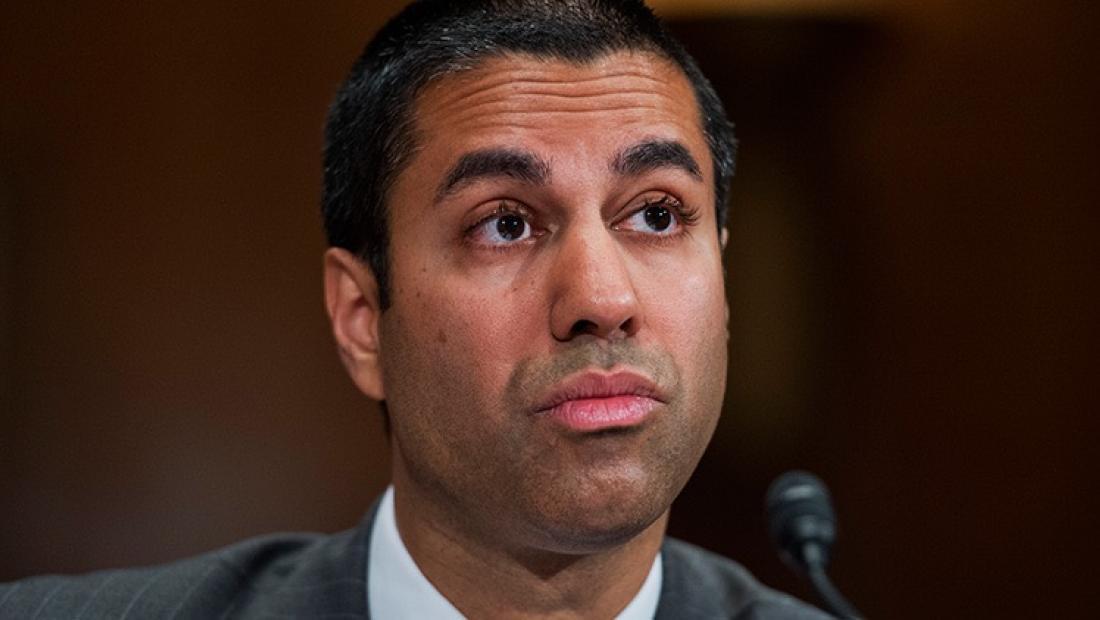Pai Proposes Denying China Mobile Application for U.S. Hookup
The smarter way to stay on top of the multichannel video marketplace. Sign up below.
You are now subscribed
Your newsletter sign-up was successful

FCC chair Ajit Pai is recommending that the FCC deny an application by state-owned China Mobile to interconnect with U.S. phone networks, reflecting supply chain concerns the FCC also has with Chinese telecoms ZTE and Huawei.
In related news, a senior FCC official said that the FCC is awaiting input from the executive branch before acting on its broadband buildout subsidy supply chain item targeting telecoms it concludes are security risks, likely including ZTE and Huawei.
The China Mobile application resolution is coming in an order being circulated for a vote at the May 9 open meeting. The order finds the application would not be in the public interest because the company, which is "indirectly and ultimately owned and controlled by the Chinese government" is "vulnerable to exploitation, influence, and control" by that government.
“Safeguarding our communications networks is critical to our national security," said Ajit Pai. "After reviewing the evidence in this proceeding, including the input provided by other federal agencies, it is clear that China Mobile’s application to provide telecommunications services in our country raises substantial and serious national security and law enforcement risks. Therefore, I do not believe that approving it would be in the public interest. I hope that my colleagues will join me in voting to reject China Mobile’s application.”
The application was filed in 2011, but when a foreign entity seeks such Sec. 214 connection authorizations to provide wired telecom service or resale, the FCC seeks input from executive branch agencies. In this case that took seven years, after which the National Telecommunications & Information Administration--the White House's principal telecom provider--recommended the application be denied. Pai agreed, and is circulating an order to the other commissioners to be voted on at the May 9 meeting.
China Mobile did submit a proposal for mitigating the executive branch's concerns, but those agencies did not feel there was a sufficient level of trust that China Mobile would comply given its close relationship with the Chinese government. The FCC echoed that finding, according to an FCC official speaking on background.
The official said that the FCC is usually receptive to foreign ownership, citing T-Mobile and Sprint, but that there were issues here that could not be mitigated.
The smarter way to stay on top of the multichannel video marketplace. Sign up below.
He suggested the same concerns about protecting the national security of the United States have been driving the FCC's proceeding on whether broadband subsidy funds should be denied to any applicant using equipment from ZTE and Huawei.
The official said the FCC was concerned that there were no meaningful checks and balances on the Chinese government to compel companies to cooperate with intelligence agencies, which applies to both the interconnection and supply chain issues and companies.
Pai two weeks ago said the FCC is quickly trying to wrap up an item banning suspect tech from using government subsidy money for broadband buildouts, but the timing appears not to be entirely in the FCC's control.
Related: Huawei Says FCC Can't Block USF Funding
But asked what the status of that proceeding was he said that how to identify just which companies would be affected remained an open question and that the FCC was still waiting on guidance from the executive branch on how to define those companies before it proceeded.
Contributing editor John Eggerton has been an editor and/or writer on media regulation, legislation and policy for over four decades, including covering the FCC, FTC, Congress, the major media trade associations, and the federal courts. In addition to Multichannel News and Broadcasting + Cable, his work has appeared in Radio World, TV Technology, TV Fax, This Week in Consumer Electronics, Variety and the Encyclopedia Britannica.

